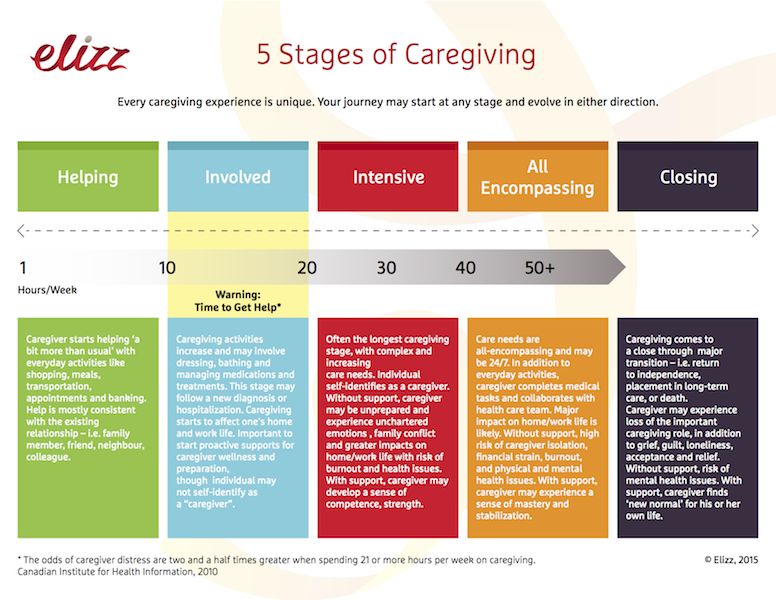This is a sponsored post written by me on behalf of Elizz for IZEA. All opinions are 100% mine.
Recently, I was chatting with friends about why caregivers have so much trouble asking for help. “Maybe it’s because asking for help sometimes feels like a betrayal of the person we love who needs care,” I suggested. “I ask myself if I am behaving like a dutiful daughter. So if I ask for help, I’m not being dutiful and I feel guilty”, my friend nodded thoughtfully.
''Picking apart our complicated feelings about love and obligation is essential in making peace with our emotions about caregiving. And to do that, we must be truthful and compassionate … to ourselves. A good place to begin self-understanding is by completing the 5 Stages of Caregiving Quiz on the Elizz website. I completed the quiz myself and scored INTENSIVE: Often the longest caregiving stage, with complex and increasing care needs. Individual self-identifies as a caregiver. Without support, caregiver may be unprepared and experience unchartered emotions, family conflict and greater impacts on home/work life with risk of burnout and health issues. With support, caregiver may develop a sense of competence, strength.

I am relieved to say that after twenty-seven years of caregiving, I do experience a sense of competence and strength. Over the years, I’ve realized that a key to being at peace with myself has been in the way that I think about my caregiving role. A few years ago, I began to understand that my loved ones had dependency needs that were separate from their personalities. For me, this was a watershed moment. My mother could still be my mother if a personal support worker helped her most days with shopping and meal preparation. My son will always want me if he is ill or in pain, but now that he’s grown up, he wants another man to help him shower and change.

Part of the reason that I experience a sense of competence and strength is because I feel good about asking for help – from family members, friends and paid support workers. Within those circles of support, we all care for my loved ones, but we care for each other and for ourselves, too.
There are lots of quizzes and resources on the Elizz site such as the Styles of Caregiving Quiz. Browse to reflect on your personal caregiving stage and how you feel about your role. There are many services available to assist families, but only you will know which Elizz caregiver services are right for you. Which Elizz caregiver services are right for you?

1 comment:
Excellent article. It is Very interesting to read. I really love to read such a nice article. Thanks! keep rocking.
Post a Comment